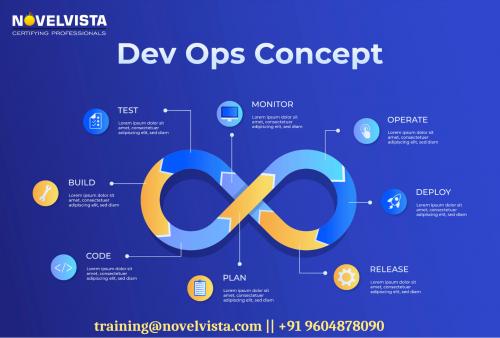What is DevOps Practitioner Concept?

The concept of a
"DevOps Practitioner" refers to an individual or professional who has
expertise in implementing and practicing DevOps principles and methodologies
within an organization. DevOps practitioners are typically responsible for
bridging the gap between development and operations teams, facilitating the
adoption of DevOps practices, and ensuring that the organization's software
development and delivery processes align with DevOps principles. Here are some
key aspects of the DevOps
Practitioner concept:
1. Expertise
in DevOps Principles: DevOps practitioners possess a deep
understanding of DevOps principles, including automation, collaboration,
continuous integration, continuous delivery, and a culture of shared
responsibility.
2. Cross-Functional
Skills: They often have a diverse skill set that spans software
development, system administration, scripting, and automation. This allows them
to work effectively across different functional areas within an organization.
3. Process
Improvement: DevOps practitioners are skilled in analyzing
existing development and deployment processes to identify bottlenecks,
inefficiencies, and areas for improvement. They then lead initiatives to
streamline and optimize these processes.
4. Tool
Proficiency: They are proficient in a variety of DevOps
tools and technologies, including version control systems, automation
frameworks, containerization platforms, and continuous integration/continuous
delivery (CI/CD) pipelines.
5. Collaboration
and Communication: Effective communication and collaboration are
central to the role of a DevOps
practitioner. They facilitate communication between development and
operations teams, ensuring that both sides work together smoothly.
6. Automation
Advocacy: DevOps practitioners promote the automation of manual and
repetitive tasks throughout the software development lifecycle. They champion
the use of automation tools to increase efficiency and reduce errors.
7. Security
Integration: In the context of DevSecOps, practitioners
also consider security as an integral part of the DevOps process. They ensure
that security measures and checks are integrated from the beginning of the
development pipeline.
8. Monitoring
and Feedback: Monitoring and feedback loops are essential
to the DevOps Practitioner. They establish monitoring solutions to gather data
on system performance and application behavior, using this data to drive
improvements.
9. Continuous
Learning: The DevOps field is dynamic, with new tools and practices
emerging regularly. DevOps practitioners are committed to continuous learning
and staying updated on industry trends.
10. Cultural Transformation: DevOps practitioners often play a role in fostering a DevOps culture within the organization. This involves promoting collaboration, breaking down silos, and encouraging a mindset of continuous improvement.
In essence, a DevOps Practitioner is a knowledgeable and skilled professional who plays a pivotal role in driving the adoption of DevOps practices, improving processes, and ensuring that software development and delivery are efficient, reliable, and aligned with the organization's business goals. Their expertise contributes to the successful implementation of DevOps principles, ultimately leading to faster and more effective software development and deployment.
Post Your Ad Here
Comments